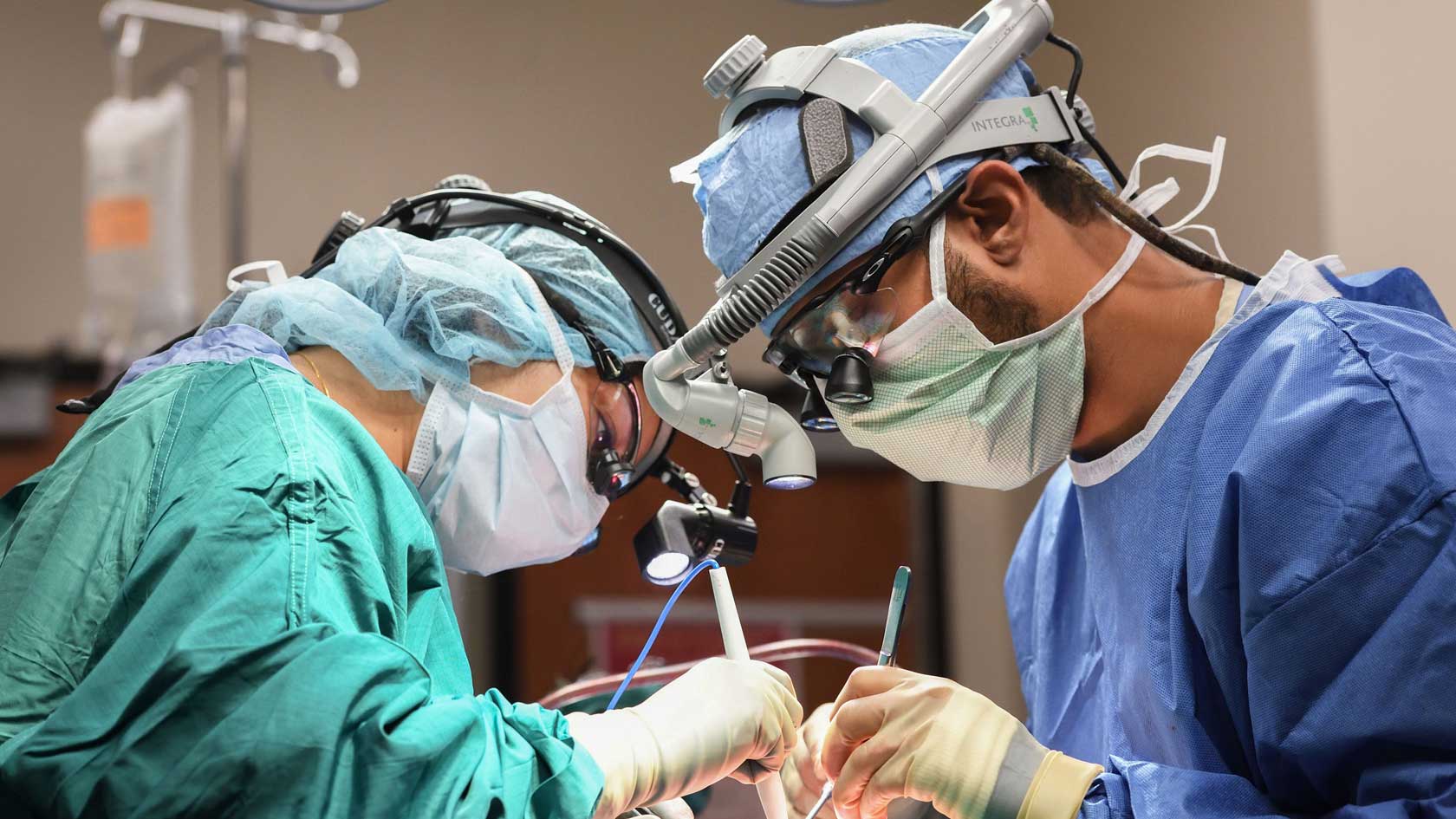What to Expect at Your Otolaryngologist Visit in Diagnosing Complex Head and Neck Conditions
What to Expect at Your Otolaryngologist Visit in Diagnosing Complex Head and Neck Conditions
Blog Article
Exploring the Field of Otolaryngology: What to Expect When You Seek Advice From an ENT
Otolaryngology, commonly described as ENT, encompasses the diagnosis and therapy of nose, ear, and throat disorders. For those experiencing related issues, speaking with an ENT expert can supply quality and relief. Comprehending what to expect during such appointments is crucial for effective communication and care. This review will detail crucial facets of the ENT experience, including common factors for gos to and the procedures associated with medical diagnosis and treatment.

Understanding Otolaryngology: An Introduction
Otolaryngology, often referred to as ENT (Throat, ear, and nose) medication, is a specialized branch of medicine that concentrates on the diagnosis and treatment of problems impacting these vital locations of the body. This area incorporates a wide variety of problems, consisting of those pertaining to hearing, equilibrium, respiratory feature, and speech. Otolaryngologists are educated to take care of both medical and clinical therapies, using sophisticated strategies and technologies. Their experience expands past standard disorders, resolving problems such as allergic reactions, sinus infections, and hearing loss. Furthermore, they play an important role in the administration of head and neck cancers cells, supplying thorough care tailored to individual client demands. Overall, otolaryngology continues to be crucial for preserving health and lifestyle in afflicted people.
Typical Factors to See an ENT Professional
Lots of people look for the know-how of an ENT expert for a selection of factors, mirroring the varied nature of problems that impact the nose, ear, and throat. Common issues include persistent sinusitis, which often causes relentless nasal congestion and facial pain. Allergies and their associated signs and symptoms, such as sneezing and itching, additionally motivate visits to these specialists (Voice). Hearing loss, whether progressive or unexpected, is one more substantial factor for assessment. Additionally, people may look for analysis for throat conditions, including persistent hoarseness or swallowing problems. Rest apnea, characterized by cut off breathing throughout sleep, is regularly dealt with by ENT specialists too. Each of these conditions highlights the relevance of specialized care in handling complicated ENT-related health and wellness issues
Preparing for Your ENT Visit
When preparing for an ENT consultation, it is vital to collect pertinent information and take into consideration any specific worries. Clients must put together an in-depth clinical history, consisting of previous ear, nose, or throat concerns, surgical procedures, and present medications. Recording signs and symptoms-- such as regularity, period, and seriousness-- can provide important understandings for the ENT expert. Additionally, people should prepare a list of questions they desire to ask, making certain that all worries are attended to throughout the browse through. Bringing along any kind of appropriate medical documents or test outcomes can even more aid the ENT in recognizing the client's problem. Clients must validate their consultation information, including area, time, and day, to decrease any final confusion. Correct preparation can improve the effectiveness of the assessment and lead to much better end results.
What to Expect During the Examination
As the consultation begins, the client can expect to participate in a complete conversation with the ENT professional about their signs and symptoms and medical background. The expert will certainly ask about the period, regularity, and intensity of symptoms such as hearing loss, nasal blockage, or aching throat. Additionally, the individual's previous medical problems, drugs, and any kind of pertinent family history will certainly be assessed, assisting the specialist in creating a total understanding of the individual's health and wellness. The ENT might also inquire about here are the findings way of life factors, such as direct exposure to toxic irritants or allergens. This open dialogue develops a foundation for the consultation, ensuring that the person's worries are dealt with and establishing the phase for any kind of required evaluations or recommendations for therapy.
Diagnostic Examinations and Procedures in Otolaryngology
A series of diagnostic examinations and procedures are vital in otolaryngology to properly assess and identify conditions influencing the nose, ear, and throat. Usual examinations include audiometry, which determines hearing feature, and tympanometry, evaluating center ear pressure. Nasal endoscopy permits visualization of the nasal flows and sinuses, while laryngoscopy takes a look at the throat and singing cords. Imaging strategies, such as CT scans and MRIs, offer in-depth sights of head and neck structures. Allergic reaction screening might additionally be carried out to recognize triggers for sinus or respiratory issues. These diagnostic devices allow ENT experts to establish a thorough understanding of individuals' problems, making certain customized and effective administration plans. Proper medical diagnosis is essential for successful treatment outcomes in otolaryngology.
Treatment Options Used by ENT Specialists
ENT experts supply a selection of treatment choices tailored to deal with specific conditions impacting the nose, throat, and ear. These treatments vary from conventional approaches, such as medicine and way of life modifications, to even more intrusive treatments. As an example, allergic reactions might be taken care of with antihistamines or immunotherapy, while persistent sinus problems could call for nasal corticosteroids or sinus surgery. For hearing loss, ENT specialists frequently suggest hearing help or surgical interventions like cochlear implants. In situations of throat problems, alternatives can consist of speech treatment or surgical procedures to get rid of blockages. Furthermore, they may offer assistance for managing sleep apnea, consisting of making use of CPAP devices or medical treatments. Generally, the goal is to boost clients' lifestyle through personalized care and effective therapy methods.
When to Seek Follow-Up Care With an ENT
When to seek follow-up treatment with an ENT expert is essential for handling recurring signs or problems connected to nose, throat, and ear problems, recognizing. Clients need to think about setting up a follow-up visit if signs and symptoms persist in spite of initial treatment, such as my response persistent ear pain, nasal blockage, or throat discomfort. Changes in hearing, equilibrium concerns, or uncommon nasal discharge may likewise call for further examination. Additionally, if a person experiences side effects from recommended medicines or has actually undergone a surgery, follow-up care is necessary to check recovery and resolve any type of concerns. Timely appointments can guarantee efficient administration of problems, prevent prospective difficulties, and provide assurance regarding one's health. Seeking follow-up care promotes proactive health and wellness administration in otolaryngology.
Often Asked Inquiries

What Certifications Should I Search for in an ENT Professional?
When seeking an ENT specialist, one need to search for board qualification, pertinent experience, and solid individual evaluations. In addition, click to read more effective communication abilities and a compassionate method can considerably enhance the total therapy experience.
Exactly how Do I Pick the Right ENT for My Needs?
Selecting the ideal ENT specialist includes evaluating their certifications, experience, and individual reviews (Hearing). It is important to contemplate their interaction style and method to therapy, ensuring they line up with the person's specific health needs and choices
Exist Any Kind Of Dangers Associated With ENT Procedures?
The risks related to ENT treatments may consist of infection, bleeding, anesthesia difficulties, and possible damages to bordering structures. Patients need to go over these threats with their physician to understand individual issues and assurance educated choices.
Exactly How Can I Handle Anxiousness Before My ENT Appointment?
To manage anxiety before a visit, people can practice deep breathing exercises, visualize positive outcomes, prepare questions in breakthrough, and look for assistance from friends or household, cultivating a sense of reassurance and peace.
What Should I Do if I Experience Adverse Effects From Treatment?
The person must without delay report them to their medical care company if side impacts from therapy happen. Adjustments to therapy or added treatments may be required to assure safety and security and performance in handling their condition - ENT Doctor. As the appointment starts, the individual can expect to involve in a comprehensive discussion with the ENT professional regarding their signs and symptoms and clinical history. These analysis devices allow ENT specialists to create a comprehensive understanding of individuals' conditions, making sure tailored and efficient management strategies. ENT specialists supply a variety of therapy alternatives tailored to attend to certain conditions influencing the throat, nose, and ear. When seeking an ENT specialist, one must look for board certification, pertinent experience, and solid individual testimonials. Choosing the best ENT expert involves evaluating their certifications, experience, and person reviews
Report this page